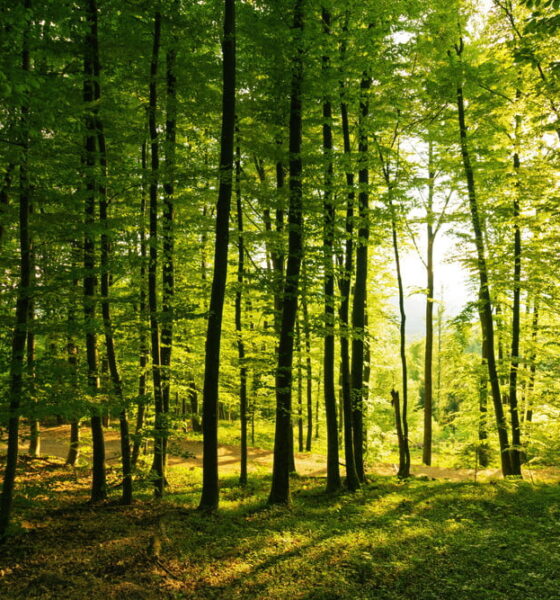

Editors Choice
Sustainable Forestry Emerges As A Crucial Concern For 2021
Our forests are under the greatest threat we have ever seen. We previously cited a report from the FAO talking about the need to protect global forests. Unfortunately, not enough has been done and many species face the possibility of extinction.
It isn’t just up to the government to implement these changes. With climate change increasingly high on the news agenda in recent times, it’s vital that businesses across all sectors are contributing towards a greener planet. Greenhouse gas emissions are having major, widespread effects on our environment – causing a rise in global temperature which in turn leads to pollution, flooding, wildfires and other significant and potentially hazardous changes in weather patterns.
Fortunately, more businesses are becoming eco-friendly. However, they don’t always take our forests into consideration when adapting their policies.
Thankfully, steps are being taken to address the problem, with automotive manufacturers producing a wide range of electric and hybrid cars, while alternative energy sources such as solar and wind power are becoming more commonplace. But what of those industries that rely on the world’s forests for their products?
Environmentalists have long protested against mass deforestation, with studies revealing that 1.3 million square kilometres of woodland was lost between 1990 and 2016. However, responsible forestry encourages careful management of these areas, which the World Wildlife Fund describes as providing “invaluable environmental, social and economic benefits to us all.”
So, how do businesses source their materials responsibly and ethically, and which organisations ensure that these practices are upheld?
What is a sustainable forest?
According to Forest Europe and the UN Food and Agriculture Organization, sustainable forest management is defined as: “The stewardship and use of forests and forest lands in a way, and at a rate, that maintains their biodiversity, productivity, regeneration capacity, vitality and their potential to fulfil, now and in the future, relevant ecological, economic and social functions, at local, national, and global levels, and that does not cause damage to other ecosystems.”
That philosophy is shaped around the three pillars of sustainability, which creates results that are:
- Socially just
- Ecologically sound
- Economically viable
Why is it important?
Forests play a crucial role in everyday life. Not only do they produce oxygen for the air we breathe, taking in carbon dioxide at the same time, but they are integral to the environment on a global scale. They provide a natural habitat for millions of species of animals, as well as food and materials for and endless array of products that we consume on a regular basis.
If mass deforestation was allowed to continue unchecked, the economic and environmental impacts would be catastrophic.
Who ensures that forests are managed in a sustainable way?
There are many bodies which promote sustainable forestry, such as the Programme for the Endorsement of Forest Certification (PEFC), a global alliance of national forest certification systems.
There is also the Forest Stewardship Council (FSC), which sets out 10 principles and criteria that businesses must meet if they are to become FSC-certified. These include compliance with laws as well as the protection of rights for both indigenous peoples and all workers.
Companies that do adhere to these standards are then certified and their products are marked with an FSC label as proof of their sustainable practices. Examples of such organisations include supermarket chain Aldi, fast food giant McDonalds, tissue provider Kleenex and fitted furniture specialists Hammonds, which has underlined its commitment to contributing towards a greener planet.
“To ensure our sustainable footprint we try and source 100% FSC and PEFC certified timber, which is used during our creation process for kitchens, bedrooms and home offices,”said Hammonds’ Head of Displays and Marketing, Kirsty Oakes.


 Environment12 months ago
Environment12 months agoAre Polymer Banknotes: an Eco-Friendly Trend or a Groundswell?

 Features11 months ago
Features11 months agoEco-Friendly Cryptocurrencies: Sustainable Investment Choices

 Features12 months ago
Features12 months agoEco-Friendly Crypto Traders Must Find the Right Exchange

 Energy11 months ago
Energy11 months agoThe Growing Role of Solar Panels in Ireland’s Energy Future




























